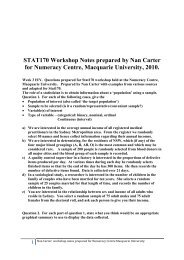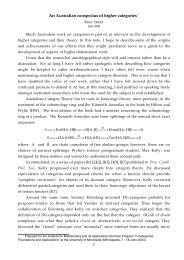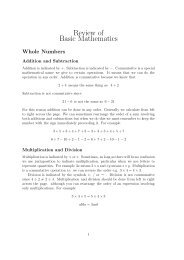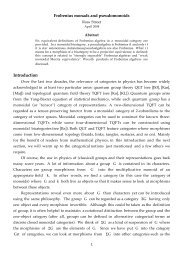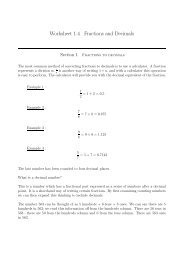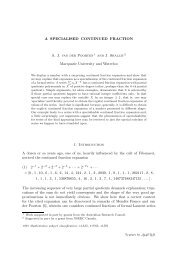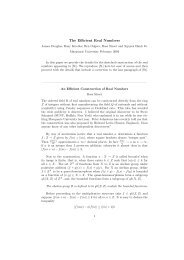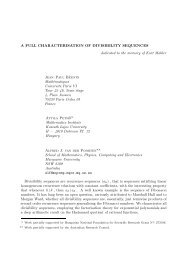Create successful ePaper yourself
Turn your PDF publications into a flip-book with our unique Google optimized e-Paper software.
called godly deprivations. Charlotte’s two eldest sisters died as a result of the<br />
poor treatment and the disease associated with the school. The traumatic<br />
experience left her as the eldest of the surviving children, expected to assume<br />
the leadership role her talented sister Maria had fulfilled so well. She was also<br />
affected by Wilson’s books for children and his monthly magazine The Child’s<br />
Friend, which had widespread publication throughout Britain. Their<br />
detrimental psychological effect on children like the Brontës should not be<br />
underestimated. They included dire warnings of eternal damnation for<br />
children struck down by God, without time for repentance and as<br />
punishment for their sins. This was supposed to encourage good behaviour.<br />
Wilson regarded a good child’s death—like that of Charlotte’s sisters and of<br />
Helen Burns in Jane Eyre—, however painful, as something to thank God for,<br />
and a means of encouraging other children to ‘seek the Lord’ and find<br />
salvation. He is brilliantly satirised in Jane Eyre as the Revd Brocklehurst, one<br />
of the many clergy that Charlotte Brontë sees as a whited sepulchre, a travesty<br />
of true Christianity.<br />
At the age of 15, Charlotte went to Roe Head boarding school in Mirfield<br />
for a year and a half, and then returned as a teacher three years later. There she<br />
again encountered Anglican clergymen who held similar Calvinist beliefs. Both<br />
she and her sister Anne became depressed, largely as a result of brooding on<br />
such beliefs, worrying during their adolescent years about their unworthiness<br />
and the resulting eternal damnation. Fortunately they also met clergymen of<br />
other persuasions: they were strongly influenced (in Anne’s case we might say<br />
‘saved’) by the Moravians, especially the Revd James La Trobe who visited the<br />
school and comforted Anne with his more humane message of the saving<br />
grace of Christ. The Moravians were a small protestant denomination from<br />
Europe that was well established in the Manchester area and who preached<br />
the doctrine of Universal salvation.<br />
This was a formative time for Charlotte. She was now nineteen and although<br />
her employer Miss Wooler was kind, Charlotte was impatient, passionate and<br />
constitutionally unsuited to teaching the uninterested daughters of the local<br />
woollen manufacturers. Her mind was elsewhere, as it had been throughout<br />
her childhood: focussed on her ‘silent, unseen land of thought’ 6 —the<br />
imaginary kingdoms of Glass Town and Angria that we’re the creative<br />
inspiration for her early writing. Her many stories, poems and plays (more in<br />
quantity than all her novels combined) centred first on the Duke of<br />
Wellington and then on his eldest son Arthur Wellesley, the Marquis of Duro,<br />
- 19 -




